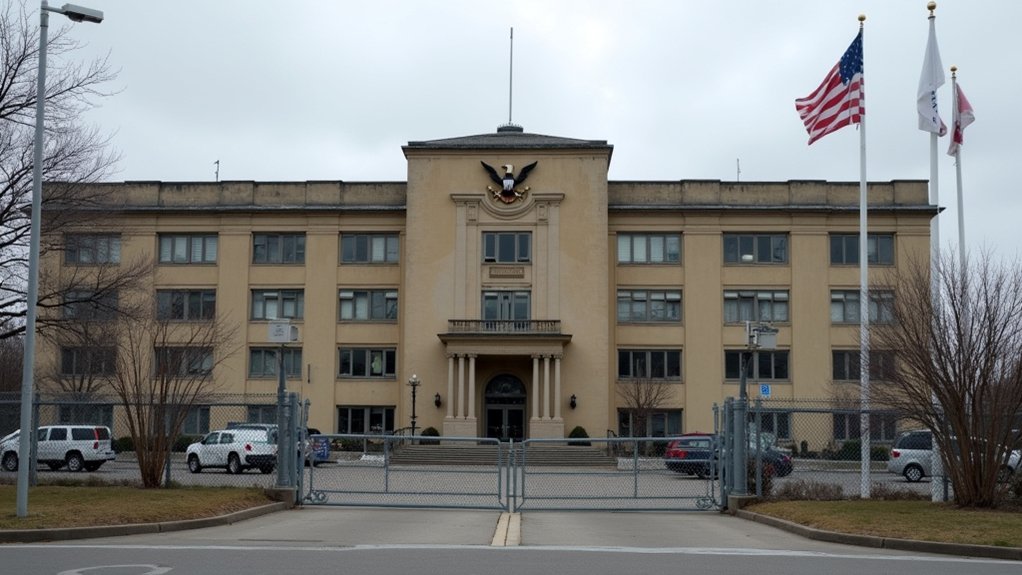Trump’s latest plan proposes shuttering 10 embassies and 17 consulates worldwide, slashing America’s diplomatic presence. The aggressive cuts target European operations heavily, including five French and two German consulates. Part of a broader 50% State Department budget reduction, the plan would eliminate $214 million in international programs. Critics warn of security risks and delayed passport services. Secretary Rubio’s metrics include consular workload and facility conditions – but the real impact could run deeper.

In a sweeping move that could reshape America’s diplomatic landscape, former President Donald Trump has revealed plans to shutter 10 embassies and 17 consulates worldwide. The dramatic proposal, part of a broader 50% slash to the State Department’s budget, would see diplomatic missions closed from the chilly outposts of Canada to the sun-baked plains of South Sudan.
Europe’s taking the biggest hit. Five consulates in France are getting the axe, while Germany loses two. Even tiny Luxembourg isn’t spared – apparently, maintaining diplomatic ties with a country smaller than Rhode Island isn’t cost-effective anymore. The Department of Government Efficiency and Elon Musk, of all people, are backing this diplomatic downsizing spree. Internal analysis shows that facility conditions heavily influenced these closure decisions.
Europe bears the brunt as Trump’s diplomatic pruning targets seven consulates, with France and Germany facing major cuts.
The plan doesn’t stop at closures. U.S. missions to international organizations like OECD and UNICEF would be merged with existing city outposts. Because apparently, two diplomatic missions are better than one – or something like that. Canadian consulates in Montreal and Halifax will be stripped down to bare-bones operations, offering just enough services to keep the lights on.
Here’s where it gets messy: $214 million in international program grants are getting axed, including anti-hate initiatives. The State Department’s using all sorts of metrics to justify these cuts – consular workload, cost per billet, facility condition. Secretary of State Marco Rubio has confirmed the cancellation of 139 grants. But critics aren’t buying it. They’re worried about everything from delayed passport services to America’s diminishing global influence.
While some figures come from leaked documents (and the State Department’s quick to point that out), one thing’s crystal clear: this isn’t just about saving money. It’s about fundamentally changing how America does diplomacy. Congress still needs to approve these changes, and lawmakers aren’t exactly thrilled. They’re raising red flags about security risks and the U.S.’s ability to respond to international crises.
Meanwhile, policy analysts are having a field day debating whether penny-pinching trumps diplomatic presence. Spoiler alert: they haven’t reached a consensus.





